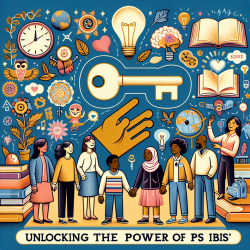Understanding the Research
The study explored how Dutch midwives perceive and incorporate the religious backgrounds of their clients during prenatal counseling for congenital anomalies. A key finding was that while many midwives acknowledge the importance of considering clients' religious beliefs, there is a notable gap in their knowledge, particularly concerning Islamic perspectives on pregnancy termination.Key Findings and Recommendations
- Approximately 69% of midwives reported considering clients' religious backgrounds during counseling. However, a significant portion (31%) did not.
- The main reasons for not considering religious beliefs included viewing religion as irrelevant to decision-making and expecting clients to initiate such discussions.
- Midwives' knowledge of Islamic attitudes towards pregnancy termination was limited, with only a few correctly identifying permissible conditions for termination.
- Midwives expressed a need for additional education on religious beliefs to better support their clients.
Practical Steps for Midwives
Based on the research findings, midwives can take several practical steps to improve their counseling skills:1. Educate Yourself on Religious Beliefs
Midwives should seek out resources and training on various religious perspectives, particularly those most common among their clientele. Understanding key beliefs and practices can help midwives provide more empathetic and informed counseling.2. Foster Open Communication
Encourage clients to share their religious beliefs and values during counseling sessions. Midwives can create a supportive environment by asking open-ended questions and showing respect for different viewpoints.3. Implement a Shared Decision-Making Model
Adopt a client-centered approach that integrates the client's religious beliefs into the decision-making process. This involves providing relevant medical information while also discussing how it aligns with the client's values and beliefs.4. Collaborate with Religious Leaders
Building relationships with local religious leaders can provide midwives with additional support and insights. These leaders can offer guidance on religious teachings and help bridge any gaps in understanding.Encouraging Further Research
The study by Gitsels–van der Wal et al. highlights the need for ongoing research into the intersection of religion and prenatal care. Midwives and other healthcare practitioners should advocate for and participate in research that explores diverse cultural and religious perspectives. This can lead to more comprehensive training programs and ultimately, better client care.Conclusion
Incorporating clients' religious beliefs into prenatal counseling is crucial for providing holistic and respectful care. By educating themselves, fostering open communication, and adopting a shared decision-making model, midwives can enhance their counseling skills and better support their clients' needs.To read the original research paper, please follow this link: Prenatal screening for congenital anomalies: exploring midwives’ perceptions of counseling clients with religious backgrounds.










